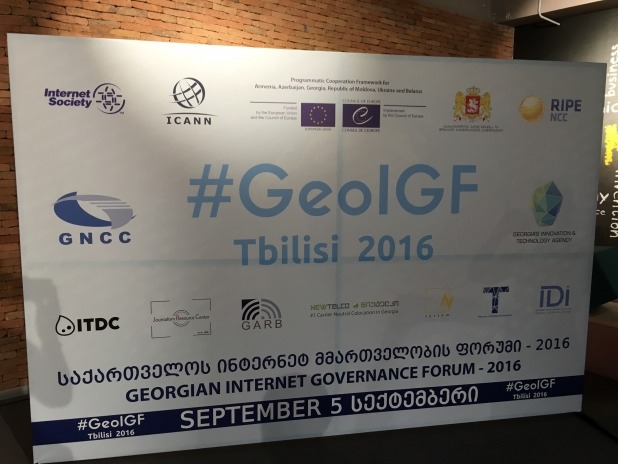
Bridging the National Connectivity Gap – What’s the Right Recipe?
By Maarit Palovirta
Former Senior Manager, Regional Affairs Europe
The second Georgian Internet Governance Forum (GEOIGF) took place in Tbilisi the first week of September. The two host organisations, the Georgian National Communications Commission (GNCC) and the Internet Society Georgia Chapter, succeeded in bringing together a wide range of partners and supporters from government, private sector, technical community and civil society.
One of the liveliest discussions took place during the panel session on Internet access and the broadband gap. For the past couple of years, there has been a vibrant national debate about the level of Internet access in Georgia. According to the latest data by the International Telecommunications Union (ITU, 2016), 45% of Georgians have access to the Internet. This is less than in the neighbouring countries in the Caucasus — Internet penetration in Armenia stands at 58% and in Azerbaijan at 77%.
Our panel session at the GEOIGF had all the components one might hope for when discussing Internet access. A representative of the OpenNet initiative (under Ministry of Economy and Sustainable Development) shared details about the plans to expand national Internet infrastructure and to develop a public-private partnership schemes for this purpose. The GNCC talked about the ongoing regulatory reform. The panellist from the World Bank outlined the Bank’s new programme GENIE, which focuses on support for innovation, skills training and other measures to boost demand for Internet services in Georgia. And finally, we learnt from a case study presenting the awarded RAIN broadband project in Lithuania.
Supply, demand generation, regulatory environment, and best practices – this is a solid set of measures to increase Internet access in any country. However, it is equally important to establish a clear strategy and a set of goals that all the stakeholders can agree on. How many people do we aim to connect over a certain number of years with the available resources? How do we reassure the private sector stakeholders that the planned interventions will not distort the market for Internet services?
A transparent and inclusive strategic planning process is critical to minimise uncertainty and to ensure sustainable results. As the Georgian government is increasingly harmonising its regulatory framework with the European Union (EU) rules, infrastructure sharing and open access will become part of the Internet services market landscape. Participants raised concerns about possible market distortions and erosion of the value of past investments. While these concerns are understandable, an increase of the number of users and growth of IP traffic through new bandwidth-hungry services will increase the total market size and typically offer more opportunities for everyone.
The Internet Society will contribute to Internet development in Georgia by supporting acommunity networking project in the remote region of Tusheti in partnership with Georgia ISOC chapter and a group of other local stakeholders. Based on the experience of many EU countries, a successful broadband strategy is often a combination of private sector led, governmental and community initiatives. The Georgian stakeholders will continue to discuss the national connectivity plan in the course of the coming months to define the way forward for their country.
Development, Growing the Internet, Europe, Georgia
Disclaimer: Viewpoints expressed in this post are those of the author and may or may not reflect official Internet Society positions.
Safer Internet Day, February 11, 2025
11.02.2025

